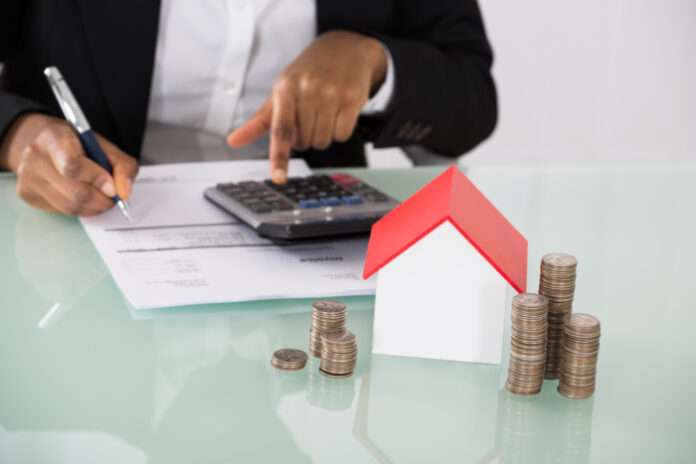Buying your own home is a big commitment, and it is one that takes most people years to achieve. Saving money for a down payment, getting pre-approval for a mortgage, and finding the right home in your preferred area are not easy tasks. Therefore, the more you know about the process, the better. As part of your preparation, you should be optimizing your finances so that you are ready to go if the perfect house comes onto the market. That is why, in this guide, we will be discussing the best ways to prepare your finances to buy your own home.
Start Researching Early
Before you begin shopping around for your dream home, there are many things you need to do to prepare, so you should start researching these requirements as early as possible. If you know which area you would like to live in, or you need to stay close to family and friends, and then research the prices in the area to understand more about what you should be aiming for. This will also give you some more knowledge on recent changes in the market, which might help you to make a decision around when the best time is to buy your own home.
As part of your research, you should also investigate what potential mortgage brokers will be looking for from a financial perspective, as getting started early can significantly improve your application.
Start Budgeting
After you’ve calculated how much you’ll need to save for your down payment, and what the requirements will be from your mortgage broker, it’s time to start budgeting! There are some key things to do as part of this process, including:
Work Out Your Outgoings
Calculating your outgoings is one of the first things you should do when you start budgeting for home ownership. Create a list of everything you pay for each month, such as rent, utilities, bills, subscriptions and groceries. Then set these monthly expenses against your total monthly income. This will show you your disposable income figure, which is money you can use to spend on whatever you like — or save towards a home! If you are having difficulty building your list, then this guide from Tally can help.
Open a Savings Account
Next up is opening a savings account. Having somewhere to put your savings makes it easier to track your running total. In addition, it lets you shop around for high-yield savings accounts that offer the best interest rates. You can even automate your savings account so that your contributions are automatically taken on payday, making it even easier for you to stash some savings away.
Increase Your Income
Increasing the amount of money you bring in each month is a great way to prepare your finances to buy your own home. As a result, you can dedicate your increased take home pay to your house savings pot! If you are not able to go for a promotion or new role at your job, then a side-hustle might be something useful to consider and work on.
Pay Off Debts
Ultimately, no matter how much income you have coming in, if that income is being swallowed by debt repayments, then you will find it seriously challenging to successfully save for a home. Even if you do not have many credit cards or loans, you might be able to reduce the larger payments you make each month if you have a large car payment. Switching to a cheaper vehicle can increase the amount of income you can save, and again this can be added straight to your down payment pot!
Get Pre-approval for a Mortgage
If you know that you will need a mortgage for buying your own home, then thinking about pre-approval as soon as you can helps you as you prepare your budget. Pre-approval from a mortgage broker is essentially the process through which a lender will tell you how much you can spend on a property based on your income, savings and investment information. By having a price range in mind, you can start to view properties in the area and get a feel for where you would like to live.
As part of the pre-approval process, your lender will need to see some of your financial documents, like your paycheck stubs, bank statements, and W-2 statements, to determine whether you are a suitable candidate for a mortgage with them. This means that, where possible, you should ensure that your bank statements are organized, tidy, and do not contain any unsuitable information, like unclear or joke payment references with friends.
Prepare for Future Expenditure Changes
Although exciting, getting pre-approval for a mortgage and starting the process of shopping around for your dream home is not the end of the journey. Understand that once you get the keys, your financial circumstances may change. This is a highly important part of the process. When you become a homeowner, there are a number of things that you will become financially responsible for that you would not have been while renting or living with family. These include the following:
Insurance
Building and contents insurance is a necessity when you own your own home, but you might not have been responsible for this before. While you can shop around to find the best insurance deal, the monthly cost of protecting your property is still something that can affect your monthly expenditure.
Home Repairs
Instead of calling the maintenance team at a shared apartment complex or contributing to the cost of bills while living with family, you will have to pay for home repairs when you own your own property. These bills add up, especially if unprepared for them and finding yourself relying on credit.
Furniture
If you previously lived in a furnished rented accommodation, then buying and maintaining your own furniture is a surprisingly large expense.
Learning what expenses you will be responsible for as a homeowner before you make the move is important. It will help you prepare for any changes to your existing budget.
Final Thoughts
Buying your own home is an incredible success, and one that with hard work and dedication you can achieve in time. By following these top tips, listing your outgoings, organizing your finances, and saving in an appropriate account, you can buy your own home and be the proud owner in no time!
Find a Home-Based Business to Start-Up >>> Hundreds of Business Listings.
















































